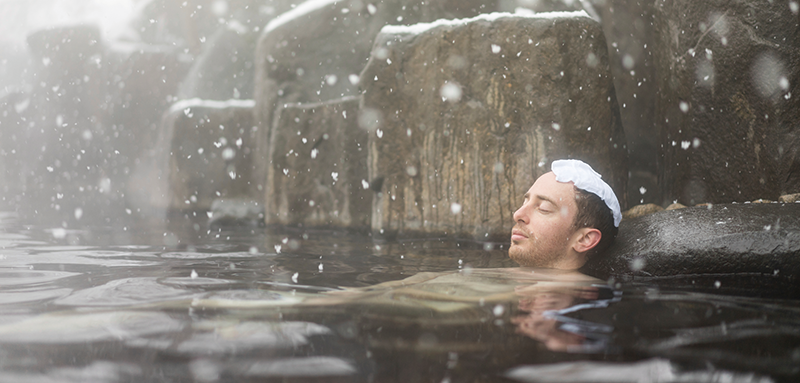By Matt Klampert
Occasionally, people from the Snow Country Tourism Association get together to discuss the future of life and travel in this region of Japan. We talked with representatives from local eateries, accommodation, museums, travel associations, and more- Let’s listen to what they had to say!
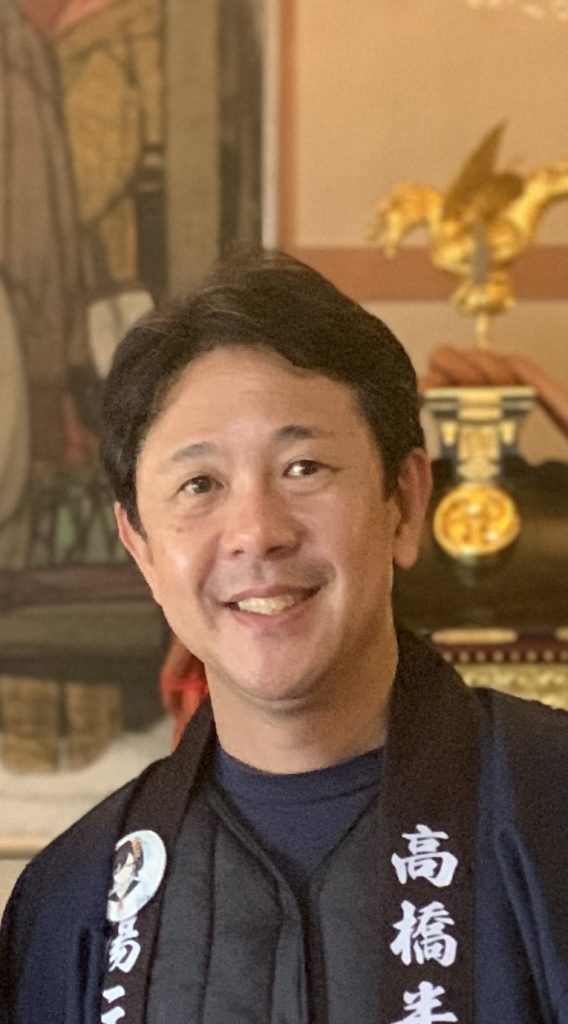
Iwao Takahashi is the 37th generation owner of Takahan, an eco-lodge in Yuzawa that has been family-owned for over 900 years. Prior to taking over the inn in 1999, he worked abroad in Canada at a travel agency. Mr. Takahashi was previously the chairman of the Yuzawa Onsen Ryokan Association, and the youth manager of the Niigata Prefectural
You were born and raised here in Yuzawa. How has the town changed?
IT: First of all, in terms of the climate in this area, it is obvious that we have somewhat less snow than when I was growing up. As for the town’s reputation as a travel destination, this is something I’ve always been used to seeing- whether they be tourists from Tokyo, or from overseas.
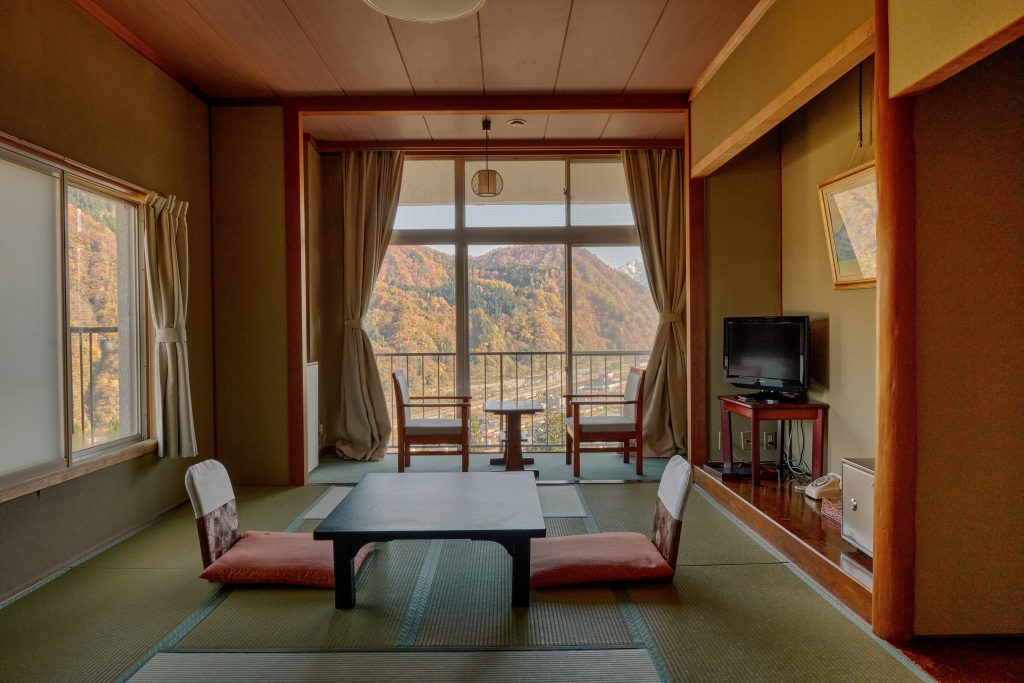
What are you most proud of as the innkeeper of Takahan?
IT: Naturally, it is our hot springs! Around here, we believe that after eating a good meal and drinking sake, taking a dip in a pure alkaline spring (such as the one at Takahan) will help balance you out and promote good health. Personally, I have become quite used to onsen water: such as drinking it, or even cooking with it! Unlike tap water, it doesn’t require chemical additives to keep clean.
What do you think about the future of onsen hotels in the area?
IT: Well, this past year we’ve had many new customers come from all over Asia. However, we currently lack sufficient data regarding the needs of customers from abroad. Right now what we need is more market research in order to address what these customers might be concerned about. This is necessary to keep them satisfied, and coming back year after year.
How should our eco-lodges proceed from now on?
IT: One thing we can endeavor to do is reduce kerosene usage in favor of pellet stoves in winter. Additionally, we can heat the buildings by using onsen itself!
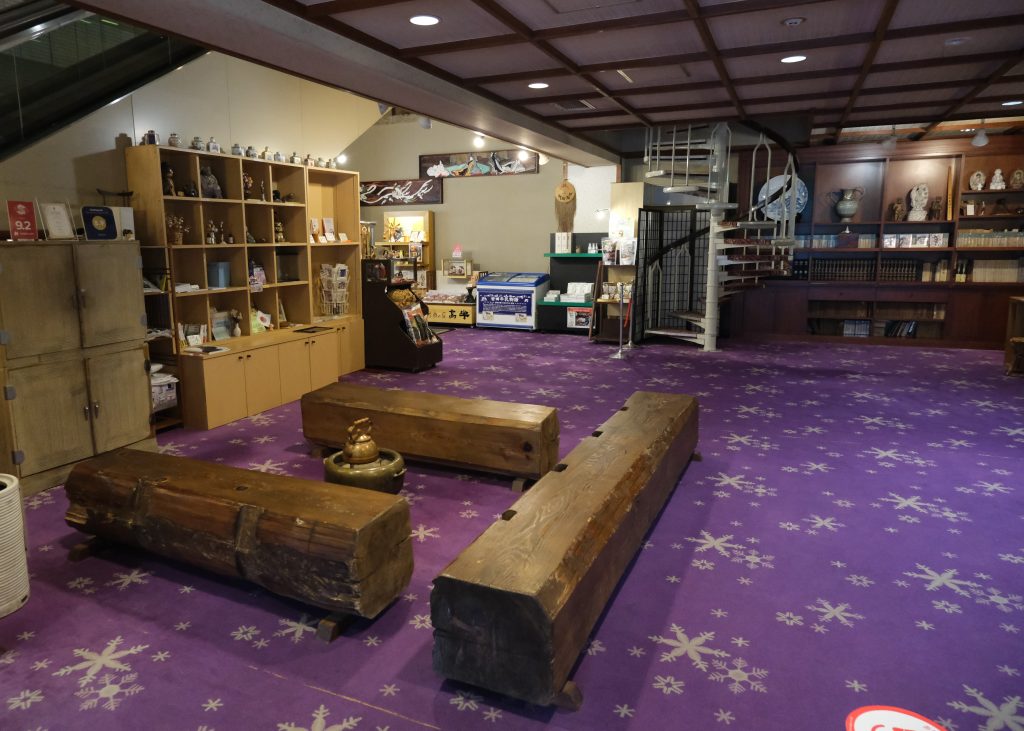
What would you like to pass on to the next generation?
IT: I would like for the coming generation to continue to preserve our natural resources, as well as the small, intimate family atmosphere of this onsen village. We should take care not to grow too much and overextend ourselves.
How can we ensure that there will be a Snow Country 100 years from now?
IT: I believe we need to strengthen cooperation between locals in the Snow Country Tourism Zone. As a local myself, it is easy to take our region’s natural beauty for granted, but we need to realize how special and unique this area is, and instead take pride in our local culture!
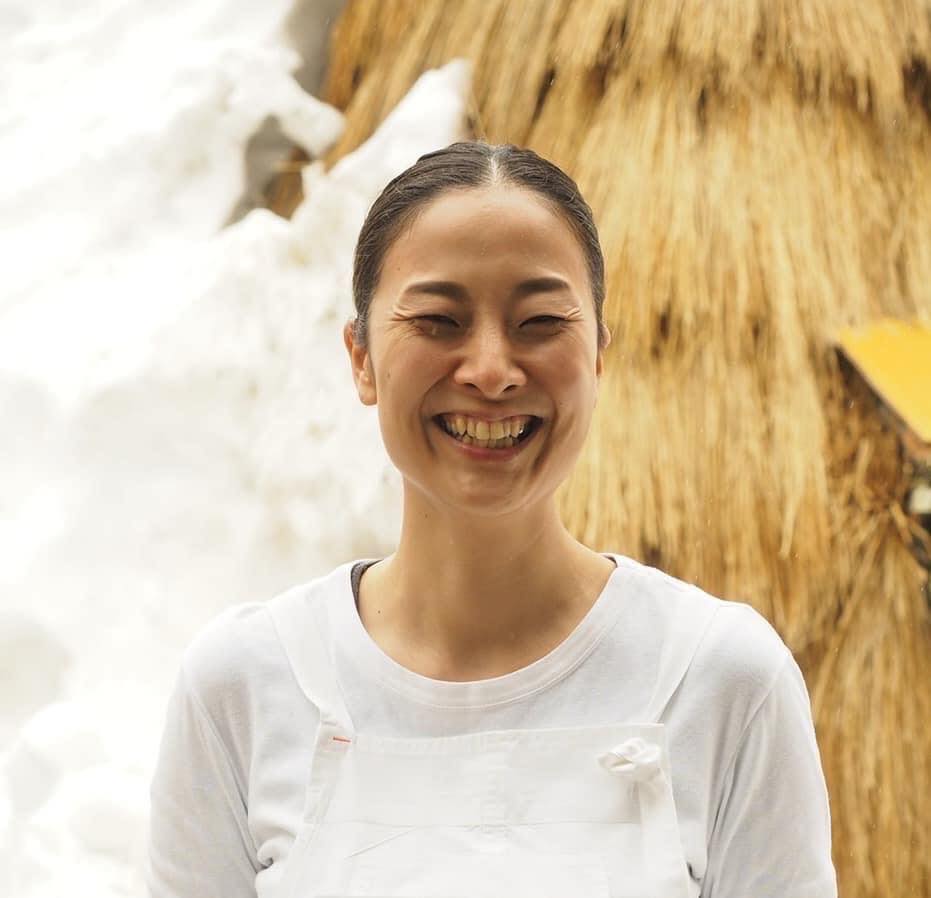
Keiko Kuwakino is the Head Chef at boutique eco-lodge Satoyama Jujo. She was born in Saitama, and traveled around the world practicing yoga and learning about vegetarian cuisine. Ms. Kuwakino received a Michelin Star in 2020 and scored 15.5 points in Gault & Millau in 2021. In 2022 Ms. Kuwakino and Satoyama Jujo were chosen as one of Japan’s 100 chefs and 100 restaurants in “Hitosara’s Best Chef & Restaurant 2022.”
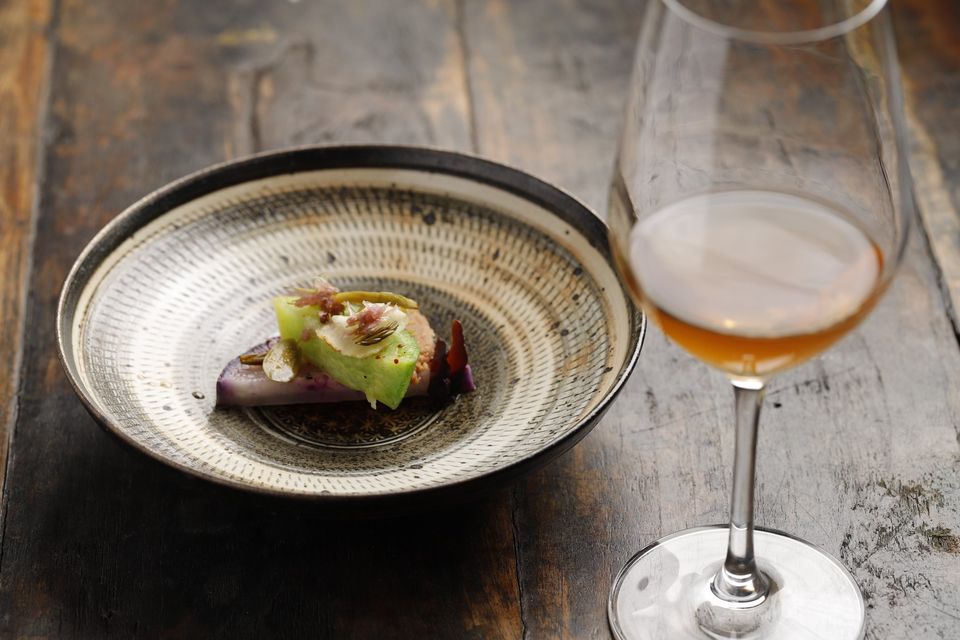
Is there a big difference in cuisine here compared to Tokyo?
KK: When I first arrived in Snow Country, it was in the dead of winter, and it seemed like nothing could grow here, so I assumed that the local cuisine would be inadequate. For example, when I lived in the Gold Coast in Australia you could go to the farmer’s market every day, so I thought food there was abundant. However, YUKIGUNI has an abundance that is not immediately apparent- it is the knowledge that has been passed down throughout history, which has contributed to a deep food culture here. Traditional foods such as sansai, and preservation methods like pickling and daikon tsugura are constantly evolving, and this both informs and enriches our culture. For example, combining the pickling techniques of Europe and Japan. Now, I think there are a lot of possibilities here.
What was your first experience picking sansai in YUKIGUNI?
KK: I picked my first sansai when I found some fuki (butterbur) on the side of the road, but I didn’t really understand about foraging at that time. Then I went to the mountains with a guide from Matsudai (in Tokamachi City). There are places in the forest where people have settled for a long time, and mountains that are considered sacred. I think my experiences there have had a large influence on my cooking.
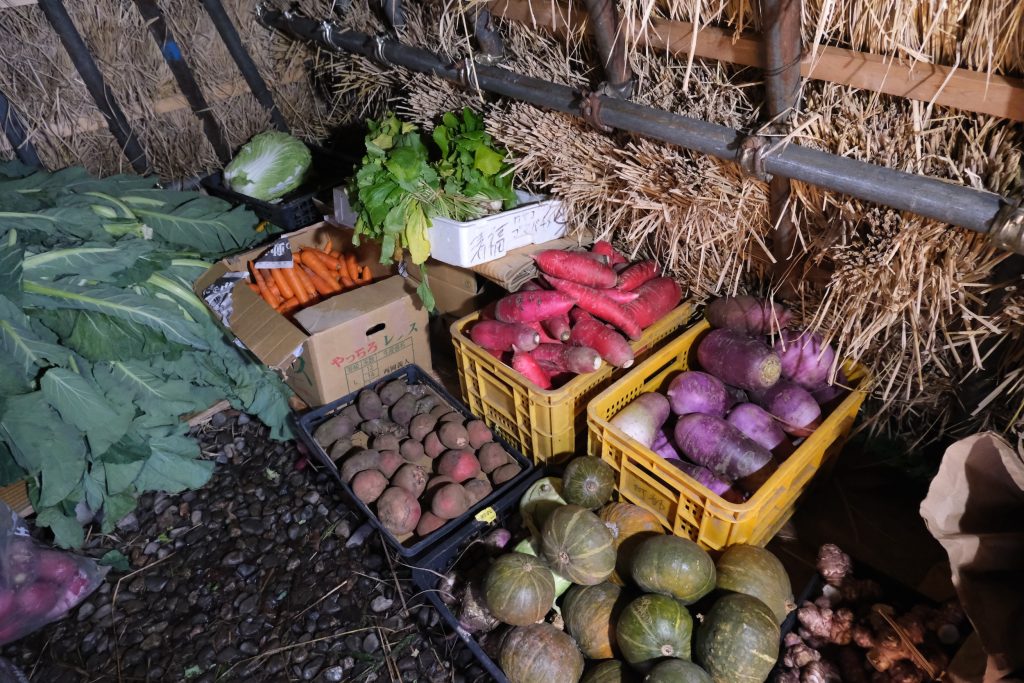
You have said that it is impossible to make washoku abroad exactly like it is made here. Why do you think so?
KK: This is because of the differences in the water and soil. In Japan we often use dashi in our cooking- stock made with sardines or skipjack, or shitake mushrooms. If you make Japanese dashi with hard water, it won’t taste like if you had used soft water, so that is a challenge. The water here in Snow Country is purified thanks to the many beech forests, and as a result it is especially soft and pure water. It’s not really a matter of good or bad, but it’s difficult to keep flavor consistency between locations. When I go abroad, first I taste the water and vegetables, and even a little of the earth they are grown in!
What sort of experience do you want your customers to have at Satoyama Jujo?
KK: We would like urban guests to be able to experience the beauty of nature here. Of course, we can’t make them have a specific experience, but we want to be able to trigger this response, for example letting our customers feel the breeze and smells of nature while at our hot spring, or hearing the chirping of birds during a quiet moment, so that they can feel YUKIGUNI at a more primal level with all 5 senses- not just food! People have an instinctual love of nature in their DNA, so these sorts of experiences help awaken that, I think.
How can we ensure that there will be a Snow Country 100 years from now?
KK: The most important thing is to protect our natural environment. We have to maintain our natural areas, from the perspective of a group of people that have coexisted with nature for a long time. That includes, for example, reducing the amount of plastic waste.

Masaichi Sato was born in Sanjo City. He has worked in Tsunan since 1994 as a cultural property specialist in charge of archaeological excavations around Mt. Naeba in the town of Tsunan. He became the director of Najomon, which opened in 2004. Mr. Sato is also a part of the local board of education, and is a part time lecturer at Kokugakuin University in Tokyo. He was given Nagano Prefecture’s Eichi Fujimori award in 2017. In 2005 he was joined by Nobuyuki Sato, and together they have worked to uncover the secrets of the Jomon settlements around Tsunan.
Please explain the appeal of Jomon.
NS: First of all, they were able to adapt with nature and live utilizing natural resources in a culture spanning 10,000 years! The amazing thing is that parts of their culture still live on in an indirect sort of way.
So what is the importance of these Jomon ruins to our modern culture?
NS: As the area around Tsunan hasn’t experienced much urbanization, there are many Jomon ruins that remain here. There ought to be such remains all over Japan, but many have been destroyed over time, while the ones in Tsunan remain undisturbed. So we have to preserve them!
What has changed since you arrived here?
MS: It has been 20 years since Najomon opened; in that time I think we have made a big impact on the local community. Local students have learned the importance of our geography and unique eco culture. I think we have helped both local kids and adults rediscover their own homeland.
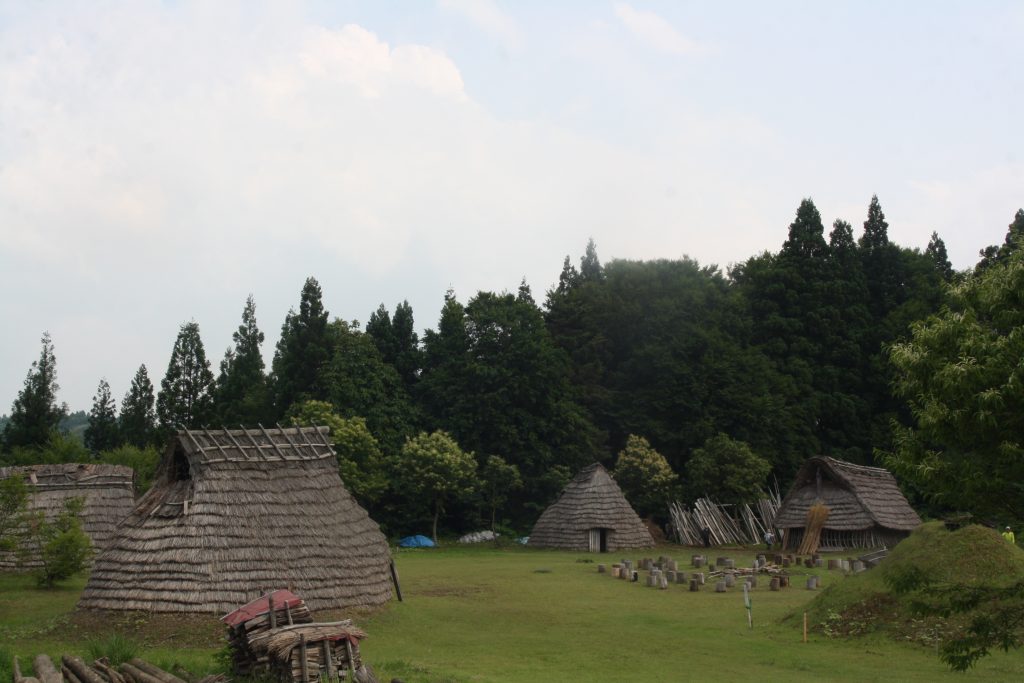
How is Najomon different from other museums?
MS: I really don’t consider Najomon a museum as such; my image of a museum is a room decorated with a lot of things behind glass that you want to touch but can’t. Rather, Najomon is a place to experience things; it’s the opposite of a museum in this way. We let people touch things, ask what they think about it, and try to foster interest in it. For example, a beginner could try making their own kaengata pottery, and then we ask people to use what they have made. This is a way to experience a different way of life, and appreciate the challenges and merits of living in nature as the Jomon did. Even by learning how the Jomon made fire, you can better appreciate the link between humankind and nature. At Najomon, it is important to become a part of the experience!
What should people of today learn from the Jomon?
NS: Well, the Jomon lived in nature, so they knew the consequences of taking from this nature. For example, if you take too many fish or sansai one year, there won’t be enough for the next year. Modern people often do not think in terms of scarcity; because there is an abundance of food, many people lack knowledge that was common in Jomon times. This contributes to a lack of knowledge of the natural world in general. We are now used to living separately from nature, and so lack the knowledge to live in nature as the Jomon once did. However, as modern people become more interested in things related to Jomon, we hope they will take their lessons to heart. While we do have abundant natural resources in YUKIGUNI, there is always the possibility of these resources running out unless we care for them.
MS: I agree! It is said that we now live in a brown world: We have seen other parts of the world suffering from deforestation and desertification, and so we must think about the significance of the forests that remain in Japan, and their link to the clean water we are able to drink. People once believed that many Gods existed in nature- there were Gods in the water and the rocks and the trees surrounding the mountains where people chose not to develop. As a result of this, we have an appreciation for our still-existent nature, so we should continue to treasure it.
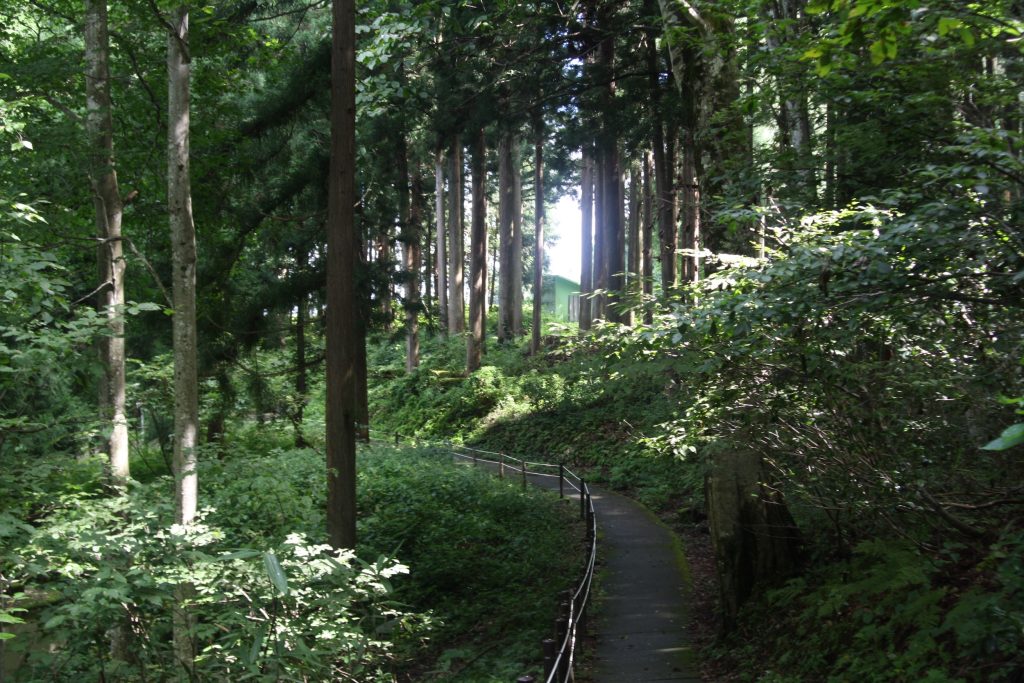
How can we ensure that there will be a Snow Country 100 years from now?
NS: In YUKIGUNI we are at risk of losing different parts of our culture. There is less knowledge and reverence of nature than before. We need to teach people about its importance. Many of the problems we now face are ecological in nature, such as the usage of cars and electricity. We need to rethink the types and amounts of energy we use, and how to balance our lifestyles with ecological concerns, and pass this on to both our children and people who travel here.
MS: Similar to what Nobuyuki said, we have to think of it as an ongoing concern, and have pride in our culture. We have a lot to be proud of- not only our snow culture, but our culture in all four seasons and preserve what we can, so that those who come after us will be able to enjoy this YUKIGUNI in 100 years’ time.
If you want to learn more about the Snow Country Tourism Association, or future symposiums, please check our website HERE.

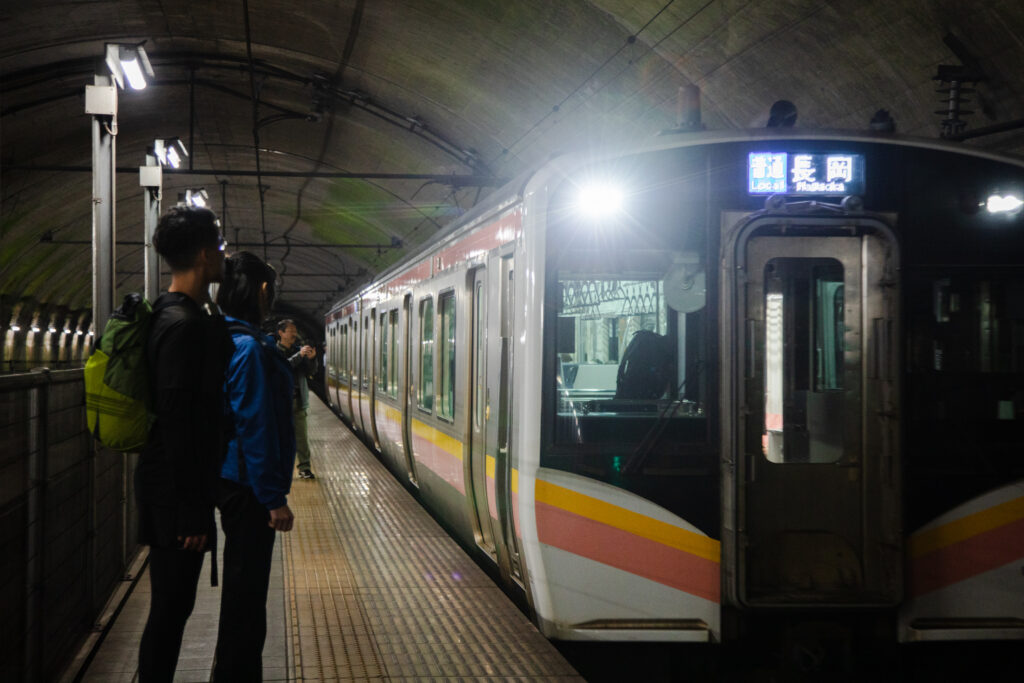
-1024x626-2.jpg)
